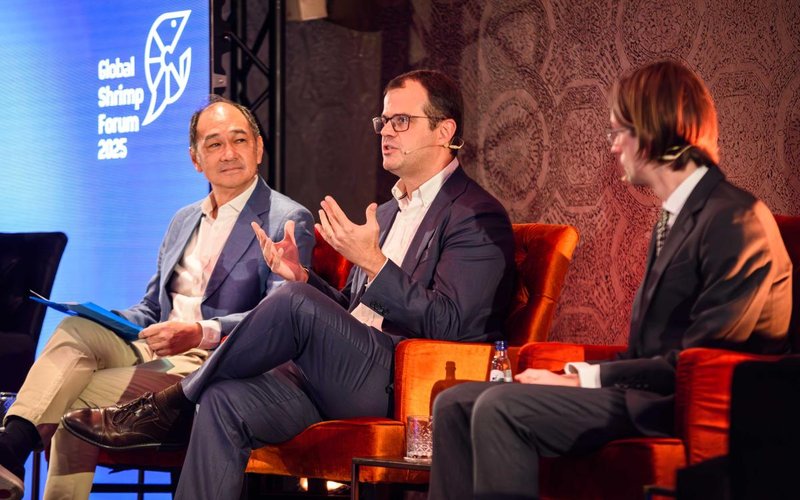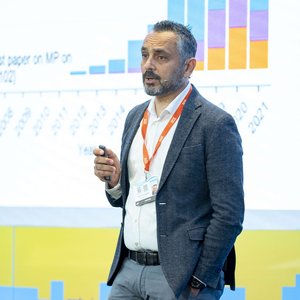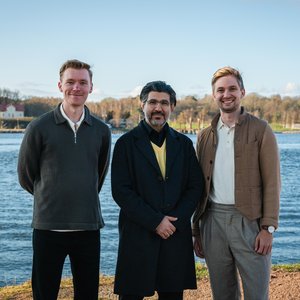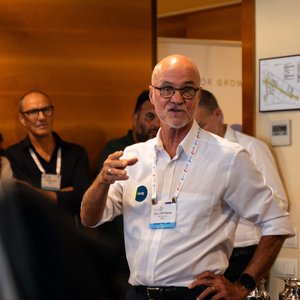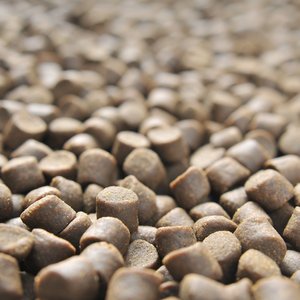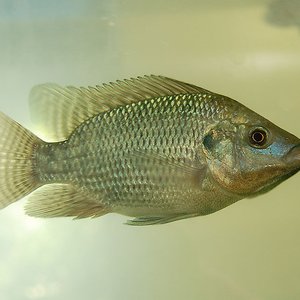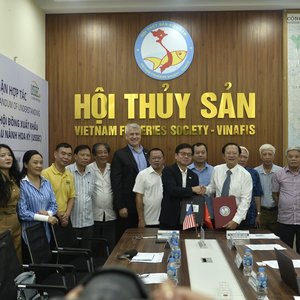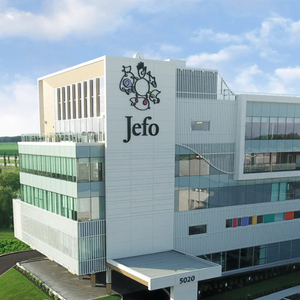Estimated farmed shrimp production grew from 4.8 million tons in 2018 to 5.88 million tons in 2024, an increase that has also driven higher demand for aquafeeds. At the Global Shrimp Forum, Adolfo Pino de B. Fontes, Head of Business Intelligence at dsm-firmenich, discussed trends in marine and novel ingredients to fit this increased demand for shrimp feeds.
Global aquafeed production rose from 15.7 million tons in 2000 to 51.2 million tons in 2023 (+226.1%; IFFO). However, marine ingredient use did not keep pace, climbing from 3.76 million tons in 2000 to 5.25 million tons in 2023 (+39.6%; IFFO). While marine ingredients once made up 25% of aquafeed formulations, today they represent just 3%.
Global shrimp feed production is projected to grow by about 3% in 2025, driven mainly by EMEA (+14.6%), Latin America (+5.6%), and China (+2.6%), according to Fontes.
Shrimp aquafeeds use an average of 1 million tons of fishmeal annually. Fishmeal production is projected to rise by 4% in 2025 and 1% in 2026 (FAO, Rabobank). “With this increase in supply, we should expect prices to go down, but that isn’t happening. Fishmeal and soybean meal prices used to fluctuate in similar ways. In 2025, soybean meal prices are falling, but fishmeal prices are rising, showing reduced market elasticity and longer-lasting effects from previous El Niño supply shocks,” Pino said.
Fish oil production is also forecast to grow by 4% in 2025 and 1% in 2026 (FAO). “Following the 2023 supply disruption caused by El Niño, prices have remained elevated despite recovery, especially when compared with rapeseed oil. This trend again suggests reduced market elasticity and persistent impacts from supply shocks,” Pino reported.
Projections for novel ingredients
To reduce reliance on marine ingredients and prepare for future disruptions, the industry has been developing novel alternatives in the past few years. Pino presented some projections on these new sources.
Single-cell proteins reached an estimated production volume of 30,000 tons in 2024, with potential to expand to 100,000 tons by 2030, of which 35% is expected to go to aquafeeds. Most SCPs contain 60-70% protein, putting producers in a similar price range as fishmeal and soy protein concentrate ($1,200-2,500/ton). “The biggest challenge is the high CAPEX requirements, $80-330 million for a 100,000 MT/year facility,” Pino noted.
Insect protein production was an estimated 15,000 tons in 2024, with potential to scale up to 500,000 tons by 2030. Of that, 50% would go to aquaculture, 38% to pet food, and the rest to piglets and poultry. According to Rabobank, as insect protein production matures, prices could eventually fall to around €1,500/ton at 500,000 MT/year. However, the industry still faces hurdles, including feedstock costs, regulatory barriers, and high CAPEX, Pino stated.
Today, algal oil is a commercially viable solution. Production was estimated at 20,000 tons in 2024 and is expected to reach 35,000 tons by 2030, with aquaculture using about 75% of the total.
“With volatility expected to persist due to unpredictable weather patterns and geopolitical tensions, reducing reliance on marine raw materials remains a strategic priority. We should think about novel ingredients as a form of insurance,” Pino concluded.
Faces driving the future of feed ingredients at the Global Shrimp Forum
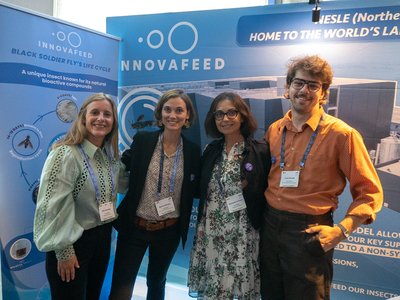
"We’re truly excited to see shrimp feed emerging as the next big step in the aquaculture industry and even more inspired that this transformation is being driven by insect ingredients. Our tripartite partnership with BioMar and Auchan shows how collaboration across the value chain can accelerate the adoption of sustainable solutions and bring real impact from farm to fork."
Innovafeed team
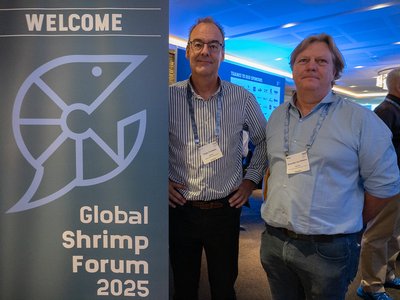
“It was great to be among almost 500 participants at Global Shrimp Forum 2025. The shrimp industry is in full global consolidation, with Ecuador taking up a clear leadership. The tariff war is an additional, unpredictable challenge affecting the competitive rules in the global shrimp market. Surely one of the hot topics this week was improving sustainability and carbon footprint, driven to a large extent by improved survival, feed conversion, and productivity at the farm. The current market outlook is clearly offering new opportunities for producers to benefit from Adisseo’s products and services. Our teams are working hand in hand with the shrimp (feed) producers to optimize additive strategies to reduce the impact from disease outbreaks and maximize feed efficiency, keys to a more sustainable and profitable shrimp sector.”
Peter Coutteau, Global Director Aquaculture, and Alexander van Halteren, Global Business Development Manager Aqua, Adisseo
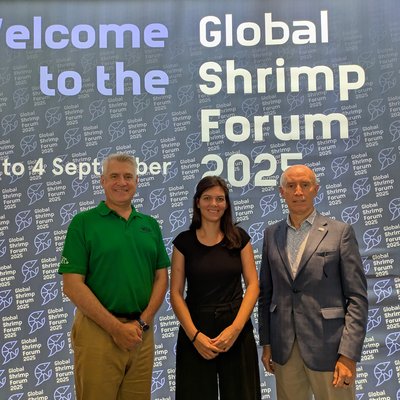
“In global shrimp production, feed is not just a cost - it's the cornerstone of productivity, sustainability, and profitability from pond to plate. The U.S. Soybean Export Council (USSEC) is committed to partnering with the global shrimp industry to drive sustainable growth and advance global food security through innovative soy-based”
Lukas Manomaitis, Morgan Cheatham, Jairo Amezquita, USSEC
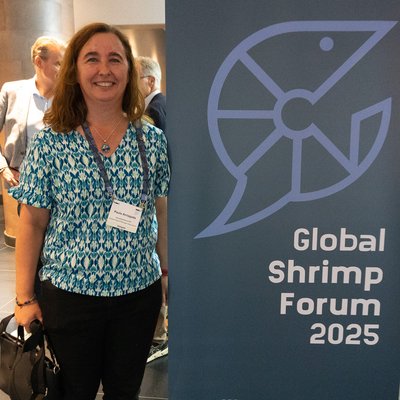
"The shrimp industry has grown in recent years and will continue to do so in the future. This implies an enormous effort in capital, technology, human resources, and coordination to achieve harmonious and sustainable growth. It is important for us at Huvepharma to be present at events like the Shrimp Forum to stay updated on the reality and changes of this dynamic industry."
Paula Arriagada, Global Product Manager Aqua, Huvepharma
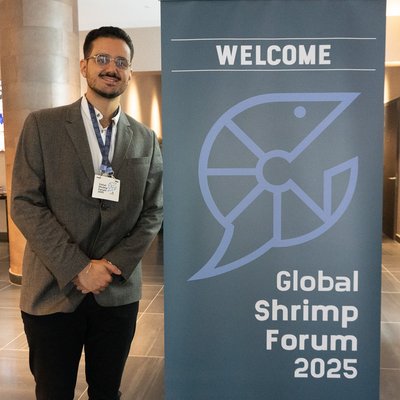
“We’re very pleased to participate in the Global Shrimp Forum! It’s exciting to connect with all the key players in our unique shrimp industry. Globally, the sector is improving despite inflation and high raw material costs, with stronger prices and better financial conditions for farmers. However, consolidation will continue as large groups acquire smaller farms. At the same time, new challenges are emerging with tariffs and global geopolitical instability. As always, the market will remain somewhat unpredictable, and industry leaders will need to stay agile to remain competitive.
At Phodé, we provide sustainable, welfare-focused solutions to enhance the economic performance of farming operations and feed plants. As a science-driven company, we specialize in designing tailor-made products for each species. Our solutions have already been widely adopted across Latin America, and we look forward to continuing our growth on a global scale.”
Amine Chaabane, Responsable Aquaculture Aquaculture Manager, Phodé
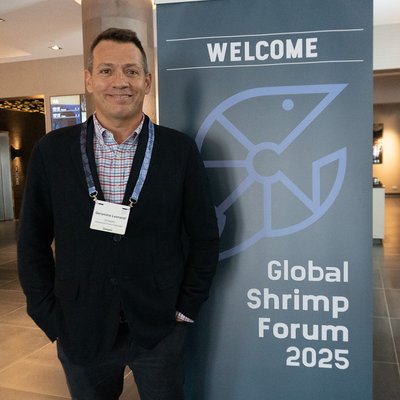
“We at Vetagro have been working and developing state-of-the-art functional additives to improve performance on shrimp farming. We have solutions that work on gut health and improve survival against known pathogens such as Vibrio and EHP, reducing the need of antibiotic use. With proven results, we strongly believe that each percentage of survival we improve leads to a more sustainable aquaculture.”
Geronimo Leonardi, Aquaculture Product Specialist, Vetagro
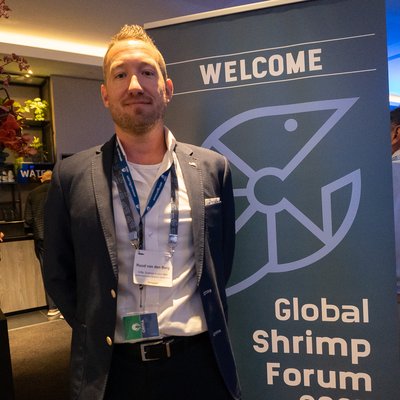
“With more than 50 years of expertise in feed additives, ORFFA is expanding into aquaculture, building strong partnerships and offering solutions that support the sustainable growth of the industry. In the shrimp sector, we provide targeted innovations designed to improve feed efficiency, strengthen animal health and resilience, and contribute to more sustainable production systems.”
Ruud van den Berg, Global Aquaculture Development Manager, Orffa
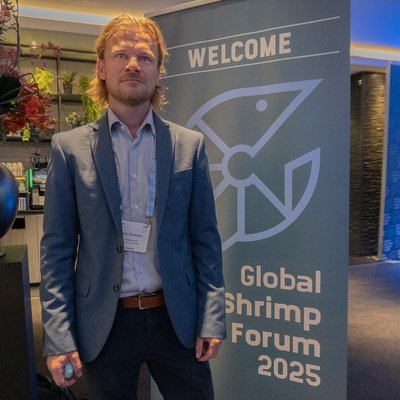
“What an inspiring three days at GSF in Utrecht! It was the third participation for MicroHarvest, and this event is the perfect place to expand our network, connect with new partners, and strengthen existing collaborations in such a dynamic and welcoming environment.”
Bruwiere Stijn, Business Development Manager Feed, MicroHarvest GmbH
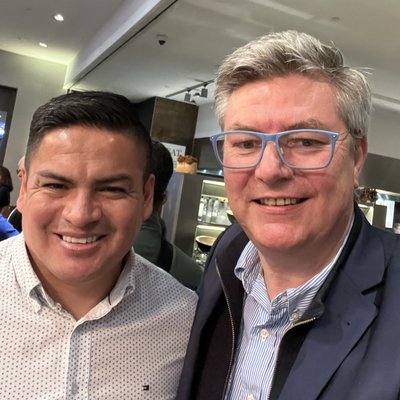
“Unibio marks its 3rd participation at Global Shrimp Forum en Utrecht, a must-attend event offering unique opportunities to connect, exchange ideas, and highlight our solid progress and steady advancements toward commercialization of Uniprotein®.”
Olivier Hartz, Chief Commercial Officer, Unibio, with Juan Miguel Peralvo Vidal, Nutrition and Formulation Manager at Skretting LATAM Ecuador
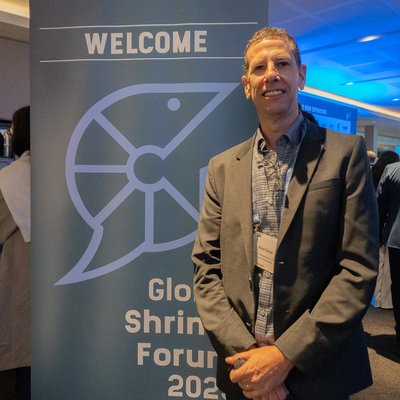
“Another great Global Shrimp Forum and a valuable chance for ViAqua to meet partners and fellow innovators. We learned a lot about current industry challenges and opportunities and look forward to coming back again next year.”
Elad Zohar, VP of Business Development, ViAqua Therapeutics
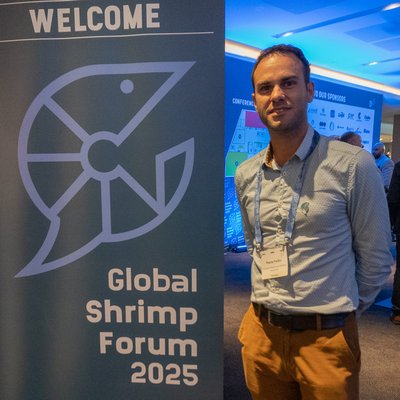
“As a first-time attendee for the Global Shrimp Forum, I found it a very good event that gathered people from the whole shrimp industry, from the larvae to the end customers, with a wide range of topics. Speakers who are true specialists in their respective fields give a high-quality presentation. Food is also very nice.”
Pierre Fortin, Responsable espèces aquacoles – Aquaculture manager, Techna
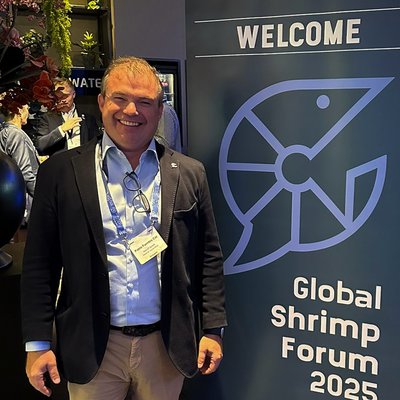
"Great event that reflects the world of shrimp very well, with a very important representation of the main players in this market. It's important for Marfeed to be in this type of forum with the best. First time, but not the last!"
Pablo Fuentes, Head of Technical & Sales, Marfeed
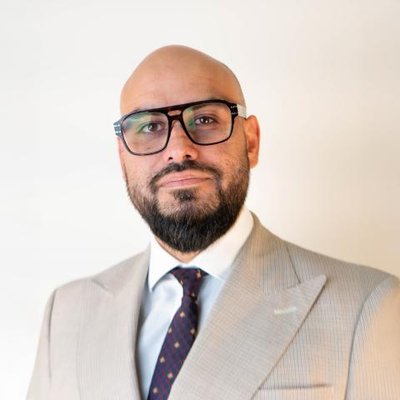
“Shrimp farming is rapidly developing in an era shaped by climate stress, intensification, and rising consumer expectations. Though these challenges are real, they also open the door to innovation that moves the industry forward. At Cargill Animal Nutrition and Health (ANH), we see nutrition as a strategic lever for resilience, efficiency, and sustainability. From unlocking the microbiome to precision nutrient delivery, we’re helping build smarter farms that can not only meet the global demand for protein, but redefine what is possible with shrimp.”
Hassan Skøien, Strategic Marketing & Technology Director for Cargill’s aqua business portfolio
Read more about the Global Shrimp Forum:
Global Shrimp Forum: Global shrimp trade is reshaping
Global Shrimp Forum: Domestic demand fuels shrimp growth in Brazil and Mexico


